Bunker King Nellan
By George Das
In the background, Jim Reeves was crooning “I Won’t Forget You”. It seemed so apt, this country ballad, befittingly played in the cremation ceremony of a legend who had passed away. It was May 18, 2020, and V Nellan was on his final course of his illustrious life.
One of his favourite putters, a Slazenger, was cradled in 71-year-old Nellan’s hand as his casket was wheeled towards the mouth of the furnace.
That was the finishing touch for Malaysia’s most colourful golfer – holing out his final putt.
There was no clapping, no cheers — just tears and a very solemn atmosphere at the cremation ceremony for Nellan who died unexpectedly on May 16, 2020.
Because of the Covid-19 movement control order in the country, the thousands of friends and students he had coached in the past 40-odd years, could not come to bid him farewell.
It was just his immediate family of about 14, the Hindu priest, my colleague Lazarus Rokk and I, representing the sportswriters who knew him, making up the numbers.
Like me, many others had only fond memories of this chappie.
Nellan lived and breathed golf. It was his spiritual base – every day, he just dreamt of nothing but golf, and he religiously worked on his game.
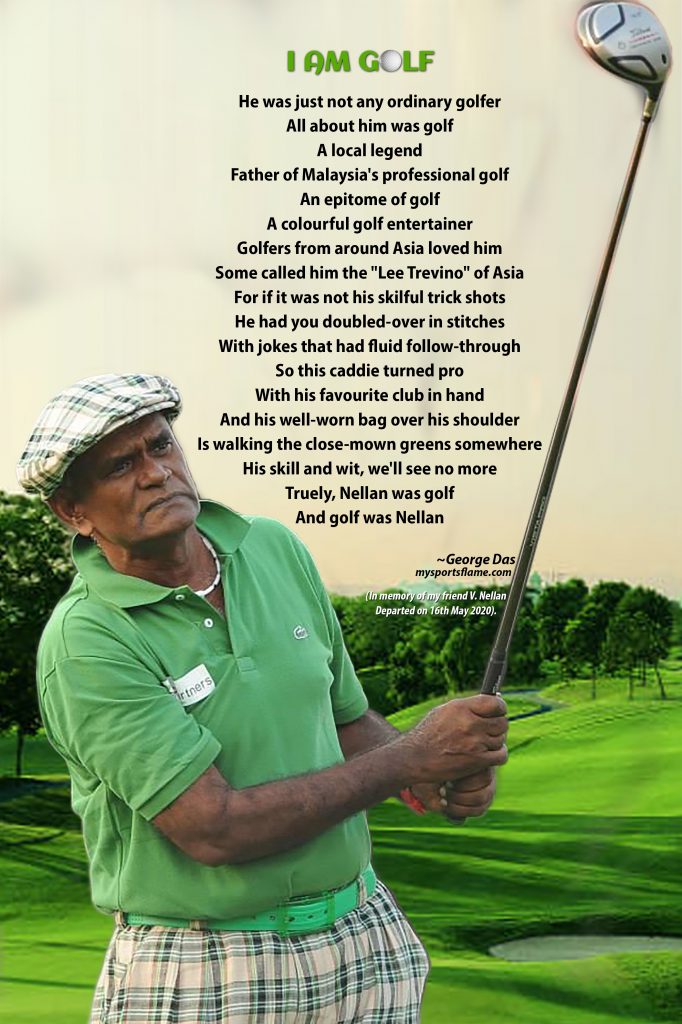
He lived his dream as a professional golfer. He never despaired. There is a saying in golf: You take the good with the bad.
And so, with grit and determination, Nellan survived the fears, the pressures, the failures, and the loneliness that came with professional sport. But he also enjoyed the successes, the pleasures of handing in a good score. Most importantly, he lived the adventure. He never lost sight of his dream and his passion.
Golf had a way of pumping him up. He loved it so much that even until his death, he was still flying off to India, Japan, Indonesia, Singapore and around Malaysia, teaching or just keeping company with some businessmen over a round of golf.
He was away most days, coming home for a week or so. That’s when he caught up with friends, driving off with brothers Qadeer and Hamid Ahmad every month to some small golf course an hour or 90 minutes away from Kuala Lumpur.
It was during those relaxing weeks that you could bet Nellan would call. Just to keep in contact. He never failed to do this on every home visit.
As Rokk and I walked away from the sombre scene, my mind was racing back to 1976 — 45 years ago when Qadeer, my schoolmate from St John’s Institution Kuala Lumpur introduced me to Nellan, Bobby Lim, M Ramayah, and Nazamuddin Yusof, all struggling Malaysian professional golfers.
Qadeer’s plea to me was: “Please help promote the local professionals. They are suffering to be competitive. Without sponsorship, they have difficulty getting to play on the Asian Tour.”
I was then a sports reporter with the New Straits Times [Malaysia]. And this was the beginning of my love for golf.
Until that casual dinner with them, I was a complete philistine who thought that golf was a lazy man’s game.
My understanding was that golfers just did a lot of walking while hitting a dimpled ball around.
How wrong I was to have such a misconception of the game, especially being a sports reporter. I discovered there were woods, irons, and putters. Each club gave the golfer a different option to execute shots.
I would hang around them almost every night either at the Equatorial or Holiday Inn on the Park, two hotels in Kuala Lumpur. Sometimes there were other professional golfers from the Philippines (Frankie Minoza, Mario Siodina), Thailand (Sukree Onsham), who would join us.
I would listen to their golf tales intently especially after that particular day’s round in a tournament. Each had some exciting experience and some woeful moments in their game.
In between, Nellan, as usual, would interject with a few jokes which not only tickled us but boosted the spirits of those who had a poor game earlier.
It was here that I was schooled in the game without having to play it. They unfolded the intricacies of what was perplexing to me through their explanations. It gave me a better understanding of how they prepared for tournaments, the exercises, their diet, their commitment and their love of the game.
Nellan would always stress to me the importance of a fitness regime.
“It’s just not going to the driving range and whacking a few hundred balls or doing stretches. You need to build your fitness too.” Nellan did it by running and doing light gym workouts and maintained a strict diet.
He told me that he studied the older foreign professionals who used to grace the Malayan Open [later Malaysian Open] since 1962 at the Royal Selangor Golf Club course. This was where he honed his game as a 12-year-old caddie.
They would all follow Peter Thomson, the five-time British Open champion. Thomson was already a golf legend and like all of them, Nellan watched every action of Thomson’s game, how he hit the ball, his swing and his putting motions.
Here, he learned to focus on one thing at a time. “Today’s youngsters are more into equipment and technique instead of going out there and playing the game.”
“We, Bobby Lim, Zainal Abidin, Nazamudin Yusof, Sahabuddin Yusof and M.Ramayah, didn’t have the equipment but we really worked on our game and “developed it”, he recalled in 2004.
He started to caddy the leading RSGC amateur players in the ‘60s — Benny Low, K C Chew, Edmund Yong, and the Lee brothers Tommy and Alex. He and the others modelled themselves after them –their golf etiquette, their behaviour on the course, their sense of dressing.
As an eight-year-old, Nellan together with M Ramayah, K Selaruas and other youngsters would follow their mothers after school to pick balls for 10 cents a day at the RSGC tennis courts and then run off to watch the leading club golfers play. He also remembered being a ballboy at the 1954 and 1955 Malayan Tennis championships.
All of them lived in the housing quarters provided by the club as their parents worked for the Royal Selangor Golf Club.
Nellan’s father was employed as a fairway turf-cutter who doubled-up as a caddie after work. And it was natural for all the club employees’ sons to pick up the game for their homes overlooked the greens or fairways.
At night, Nellan and his friends would go to the driving range where the club members had earlier hit hundreds of balls. With their homemade clubs made out of guava tree branches, they would hit the balls. Their workout would be to hit the balls as close to one spot as possible to make it easier the next morning to collect the balls.
This is where they learned to drive the ball with accuracy.
I recall Nellan telling me decades ago: “Nothing serves your game better than putting in a lot of practice. All the top players in the world follow this system.”
Nellan was a superb bunker player. He could play an intentional shot from any bunker onto the fairway or green with ease and was regarded as the” bunker king “in the country. His favourite club for getting out of bunkers was the Arnold Palmer Dunlop sand wedge while for practice he used the 4-iron.
As Nazamuddin Yusof, a fellow Malaysian pro, who watched Nellan play in the 1974 Malaysia Open at the Royal Perak Golf Club course as an 18-year-old schoolboy said: “He was brilliant. No, he was a master craftsman when it came to hitting out of the bunkers. He was no doubt the best there ever was in Malaysia when it came to bunker play.” Nellan finished 32nd to pocket US$300.
Nazamuddin said that when he turned pro in 1976, Nellan passed him many tips on how to get out of bunkers. “I still use Nellan’s tips in teaching golf today.”
Here’s how Nellan developed his mastery of bunker play.
His childhood home was just a couple of putts away from RSGC’s 17th hole of the Old Course – a par-3 elevated green surrounded by five bunkers where Nellan worked for hours under the moonlight to perfect his shots.
“He could play some superb trick shots and crack a joke to the excitement of the crowd,” recollects Bobby Lim, who partnered Nellan in the 1977 World Cup tournament at the Wack Wack Golf Club course in Manila. They finished 11th overall for Malaysia’s best finish ever.
Although Lim lived in the adjoining Chinese quarters at RSGC , he only became close to Nellan when they were about 14 years of age and that close bond continued until Nellan’s death. In 1968, Lim loaned his full golf set with which Nellan captured the RSGC caddie championship title.
Nellan was an easy-going character and would pass on his golf knowledge to anyone and everyone. He was known to walk up to strangers practicing and correct their swing or even bunker shots.
“When we toured Indonesia in 1977 for a month, Nellan corrected my drives, my swing, and my putting. That was how generous Nellan was,” said Ramayah, who came from the same “kampung”.
Like Ramayah and Nazamuddin, there were many others he would help — this included a 19 year-old rookie pro Vijay Singh of Fiji.
Vijay made Malaysia his launchpad, playing on the local circuit. He was still trying to get his game right, and Nellan was there to help him.
He was like a mentor to Vijay, and whenever the Fijian came this way after he made his name on the world stage, Vijay never forgot his humble beginnings. He always took time to meet Nellan to reminisce.
There was one nagging disappointment that he carried all through the years. After winning the Caddie championship crown, he requested to play in the 1969 Malaysia Open at RSGC but they did not entertain his request. However, the Singapore Open (1969) organisers accepted his application together with Lim and Ramasamy. This was Nellan’s first international professional golf competition.
He was very appreciative of Saujana Golf and Country Club for they continued support for him by sponsoring him as their touring pro throughout the years playing in the Senior British Open, and other senior events in the US, Europe and Australia.
“I still have got a lot of golf left in me. No way am I going to put my clubs away. I love the game too much,” was how he regarded golf and even the early stage colon cancer which he contracted in 2007 could not keep him away for long from his passion.Three months after surgery he was doing light training and within a year he started competing again.
Nellan could have worked at many lucrative golf assignments overseas, but he never took up those opportunities. From 1992 to 1995, the Callaway Golf Company wanted him to be a coach at their headquarters in California. There was another offer to coach youngsters in Mexico.
He turned down all these offers. He didn’t want to be stuck in one place. He enjoyed being a nomadic golf pro, travelling, meeting different people and above all, enjoy playing the love of his life.
For sure, the golfer with those trick shots and a pocketful of jokes, often mimicking Fred Couples, Seve Ballesteros, Lee Trevino and others, had helped establish a new frontier for Malaysian golf.
Skiing or Golf
By Kyi Hla Han
I first met V. Nellan at a tournament in Sweden in the early 80s.
I went to play in Europe in 1983. The European Tour was not what it is today. There was no Challenge Tour in those days, but there were well-organised tournaments in countries such as Sweden, France, Italy, Germany and others.
In one of the Swedish events in Malmo, the tournament organisers said I would be housed with a Swedish family, along with two players from Malaysia.
I found out it was Nellan and M. Ramayah. I was quite happy to see them as I was the only player from Asia plying my trade in Europe in those days and had been in Europe for a few months.
We played the practice round together. The weather was pleasant, but on the first day of the tournament, a storm swept in. It was 8 degrees Centigrade, rainy, and windy.
Nellan and I were teeing off around the same time, and he whispered to me: “Kyi Hla, I don’t think I want to play in this weather so I want to withdraw.”
He didn’t have any cold weather or rain gear, so I lent him mine. He looked like he was going skiing.
I laughed when he said, ‘This is the first and last time I’m going to play in Europe’.
It was quite funny the way he was talking to me about the conditions saying, ‘Why did he ever come and play here’. Anyway, he did play and did not score very well.
(Kyi Hla Han is a golf pro from Mynamar. Was the former Executive Chairman of the Asian Tour & the 1999 Asian Order of Merit No. 1).

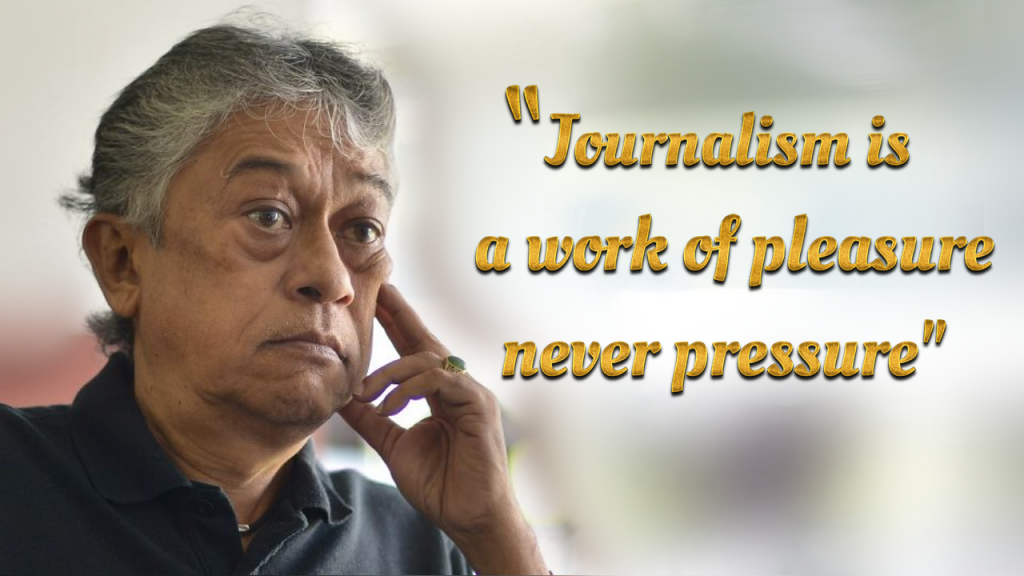
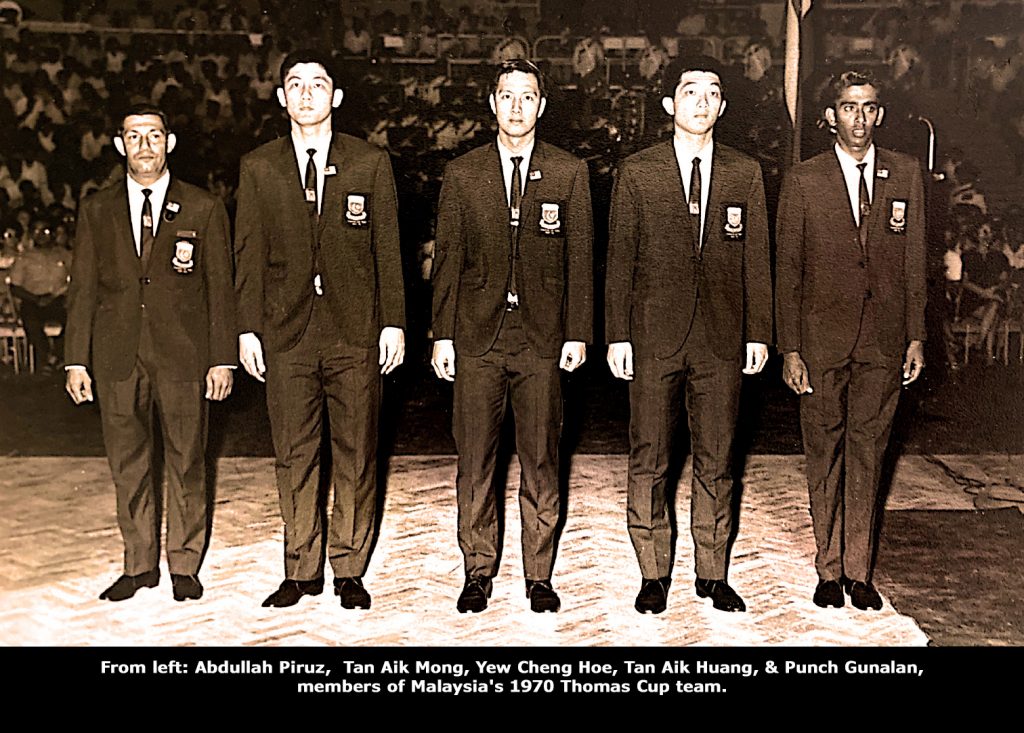
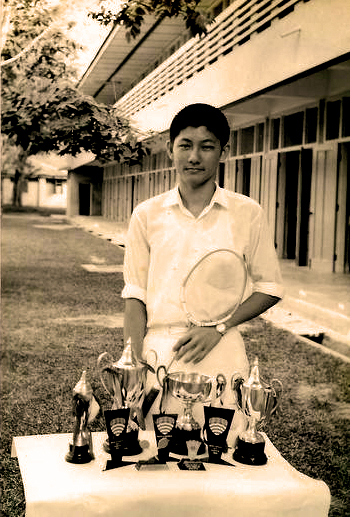
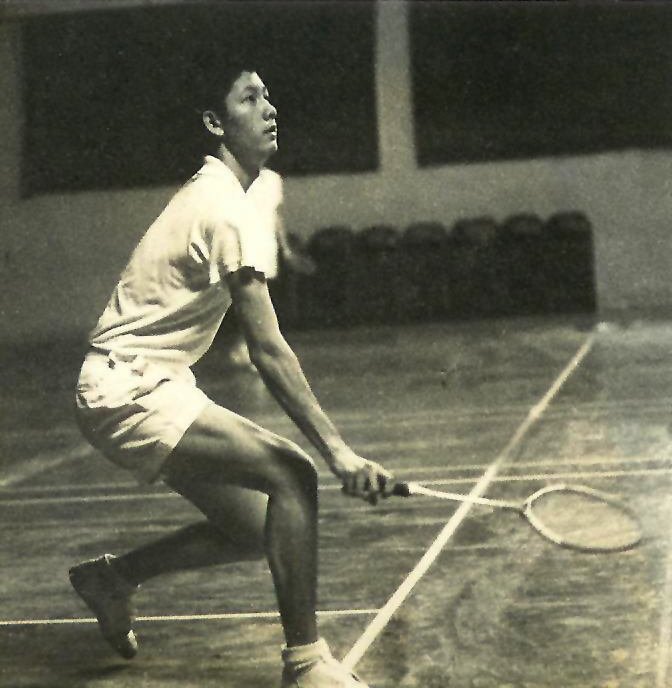







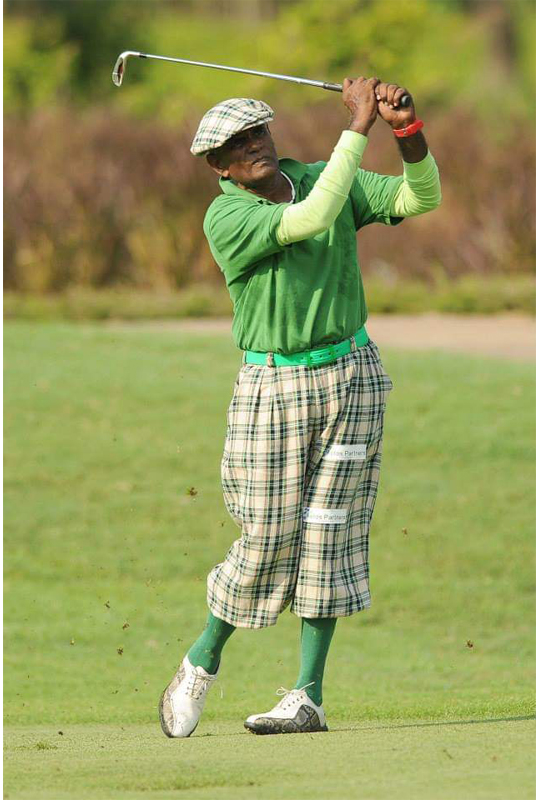
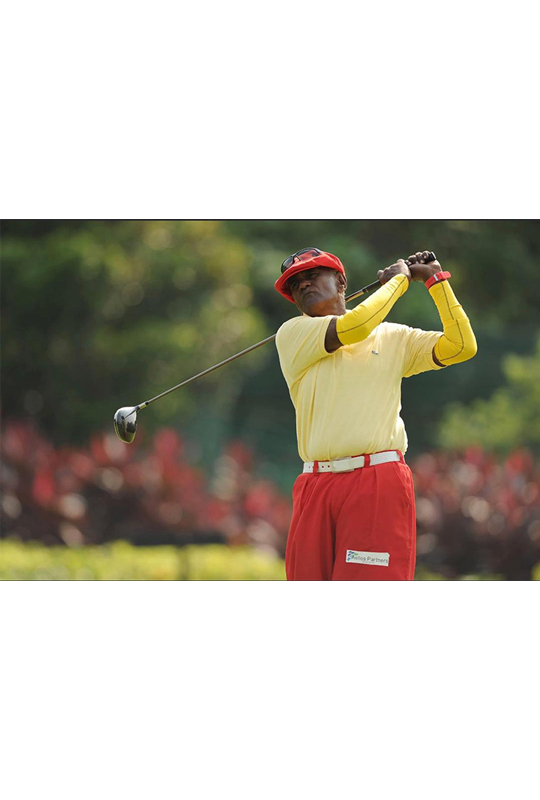
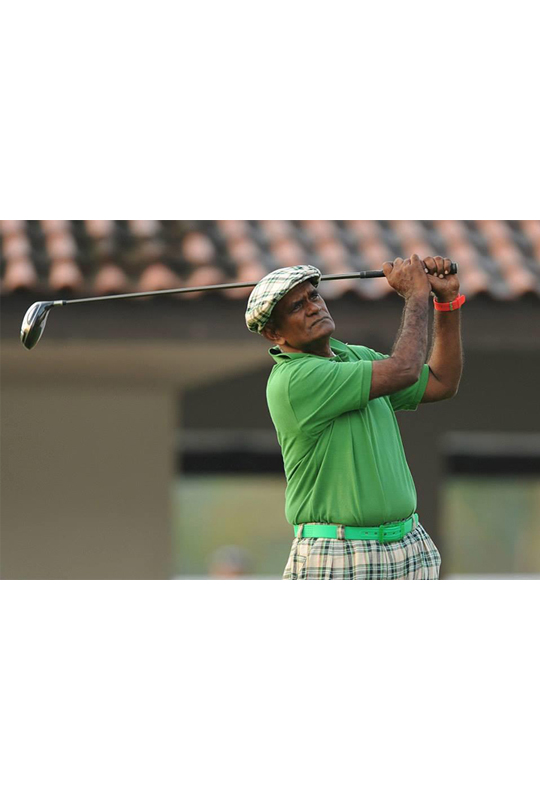
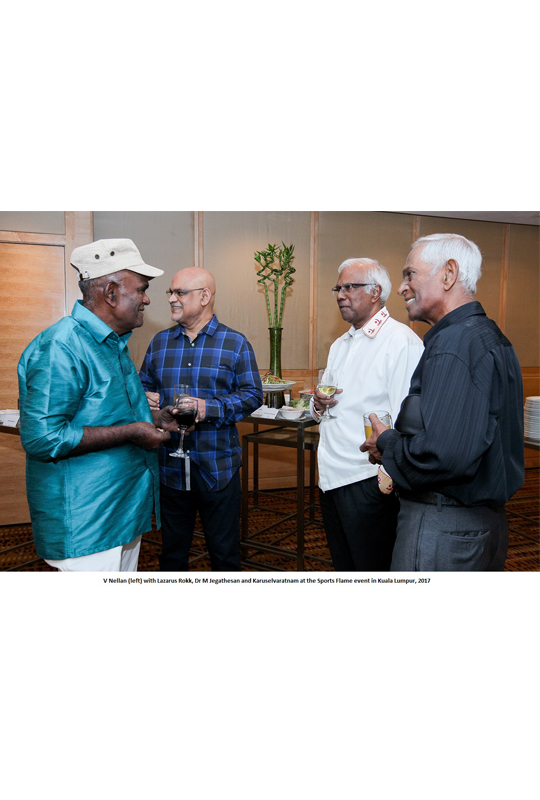
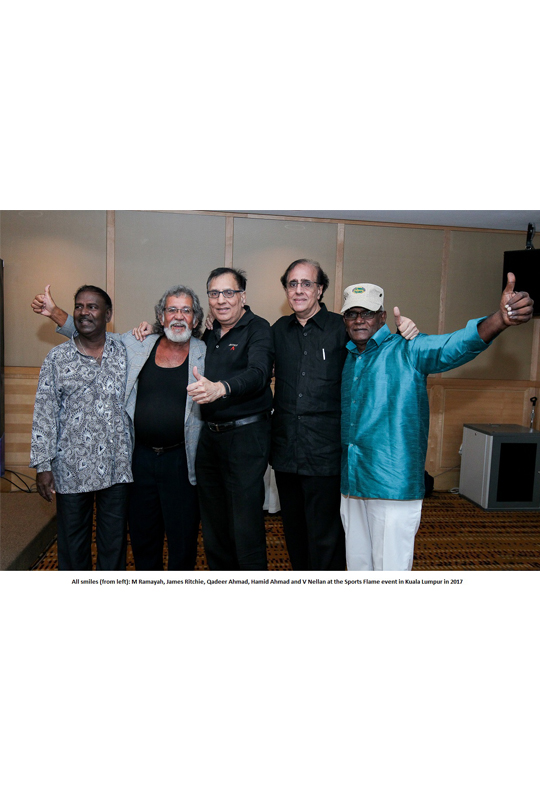
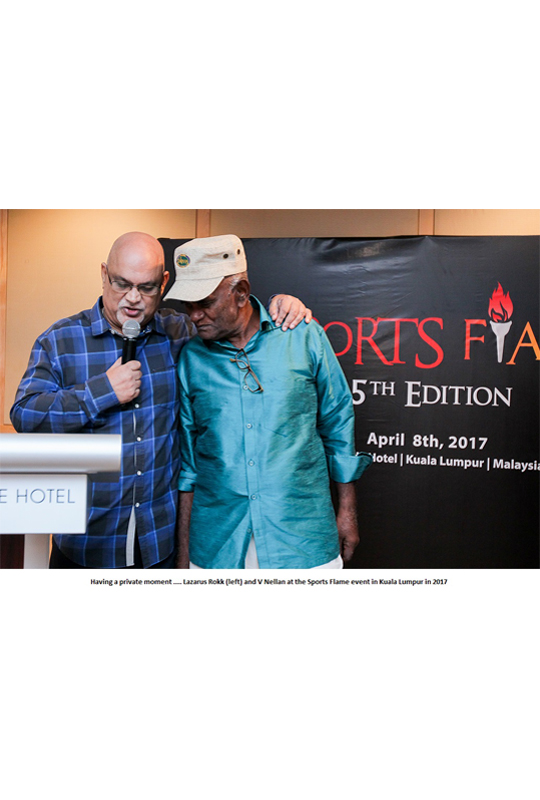

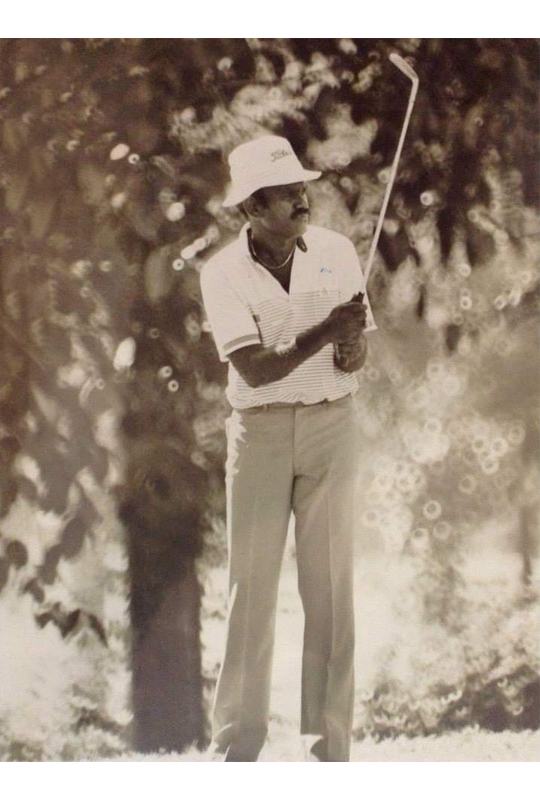
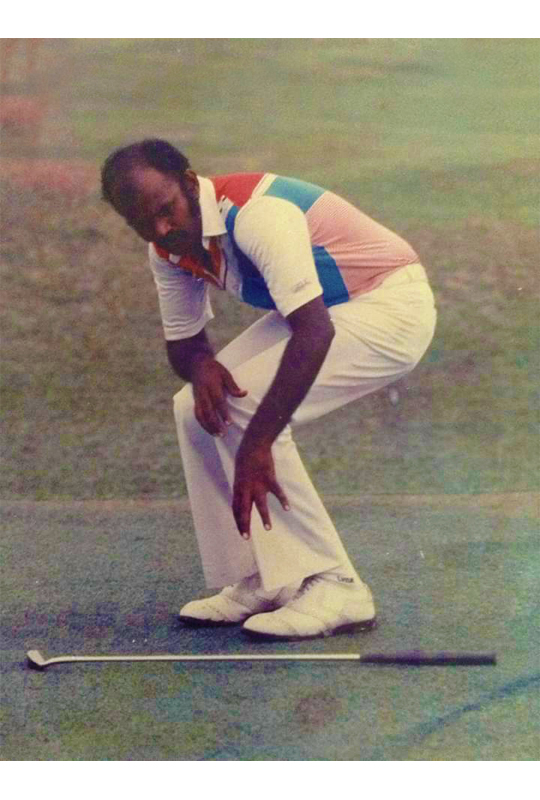
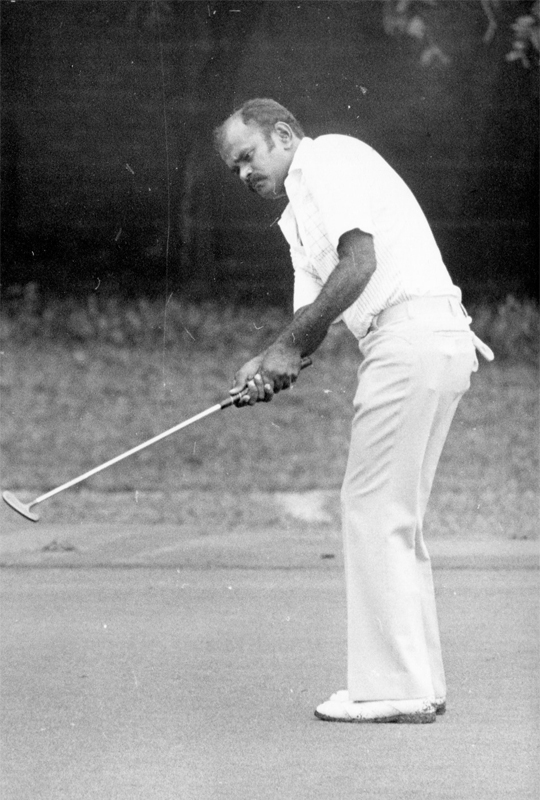
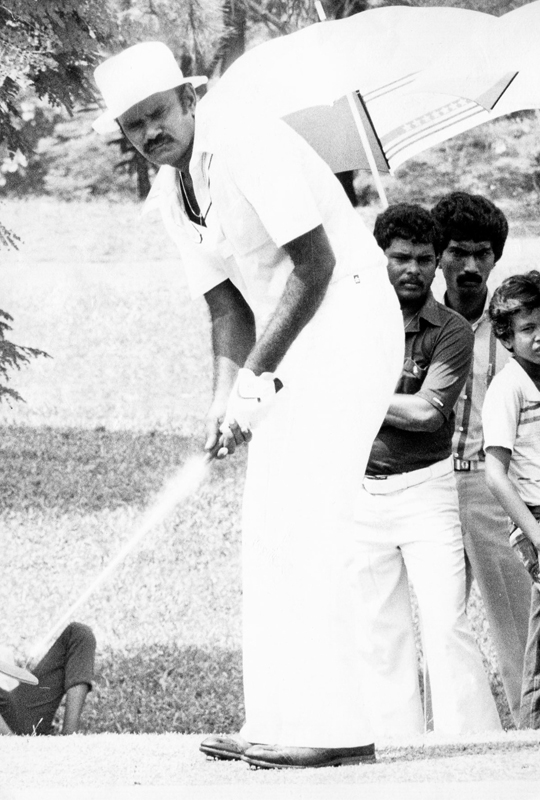
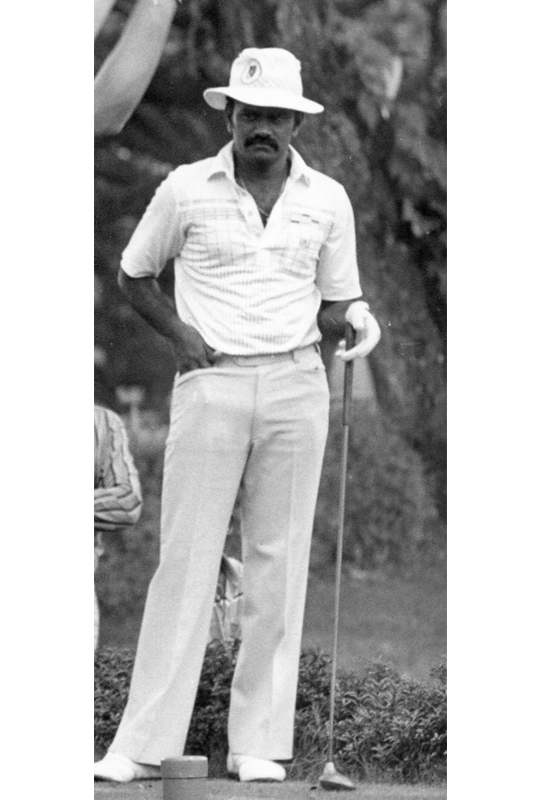
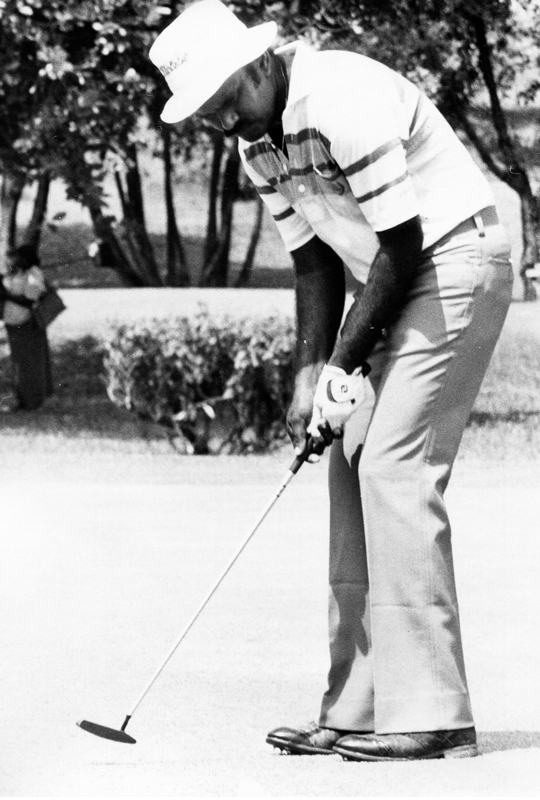
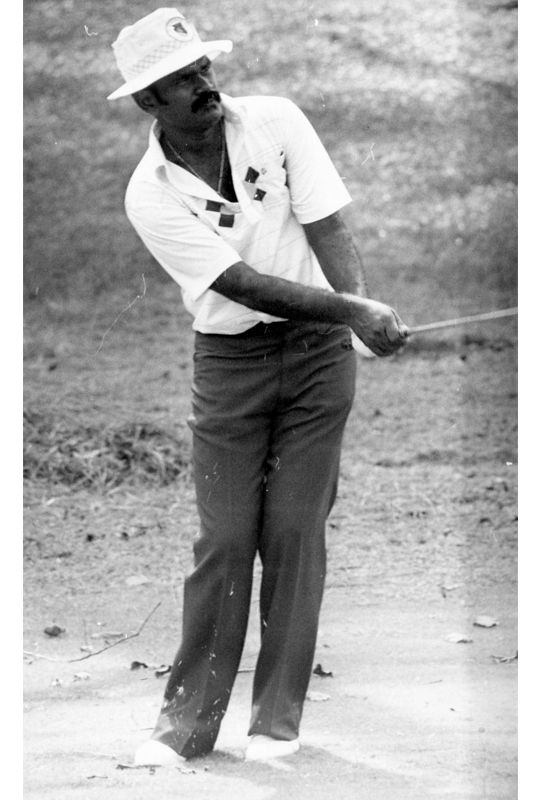
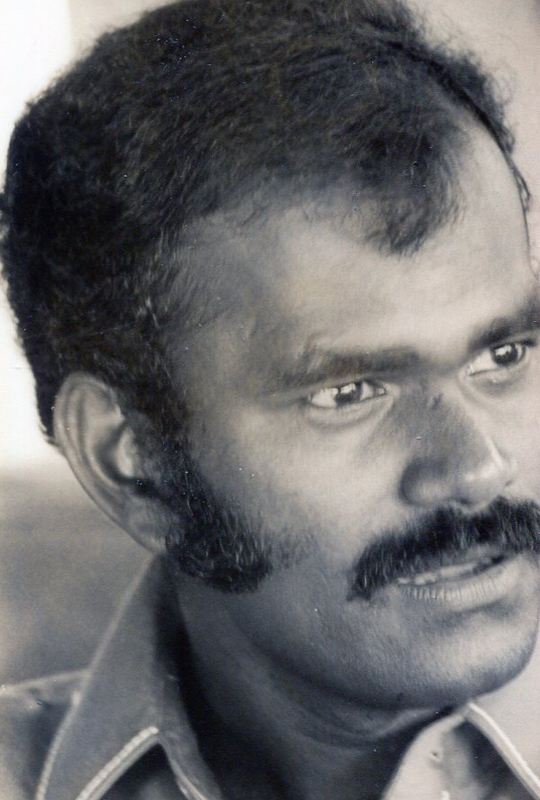
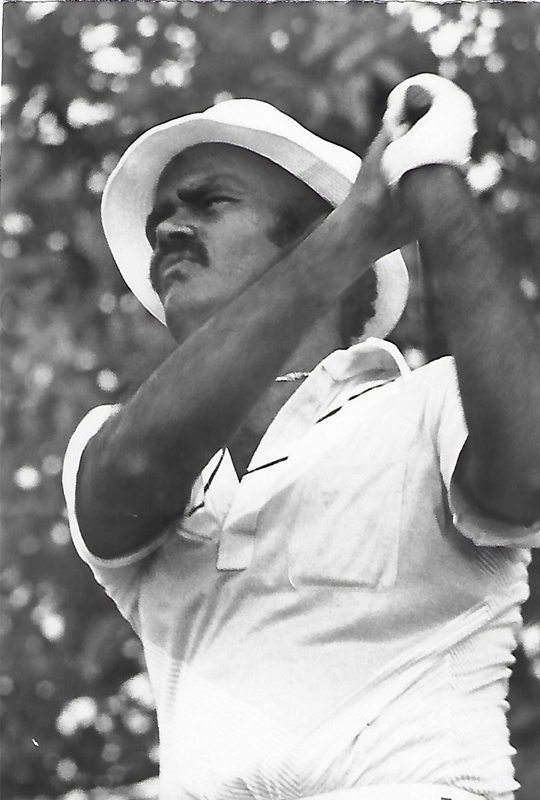
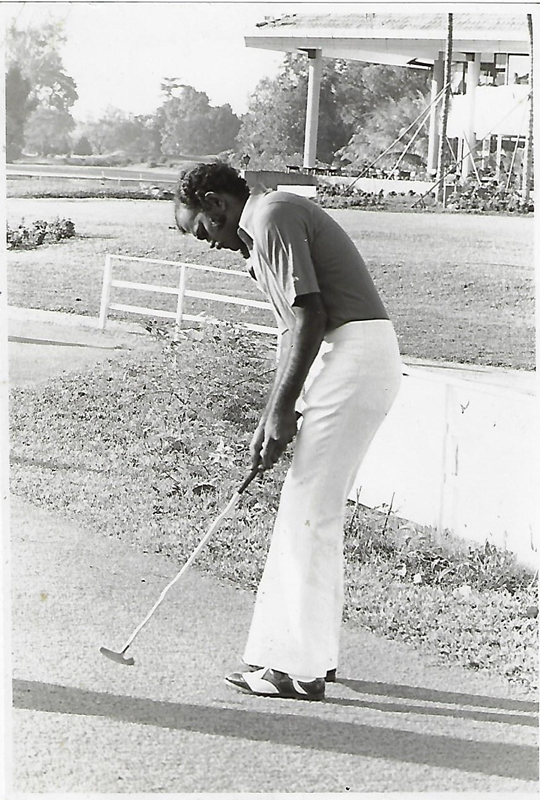
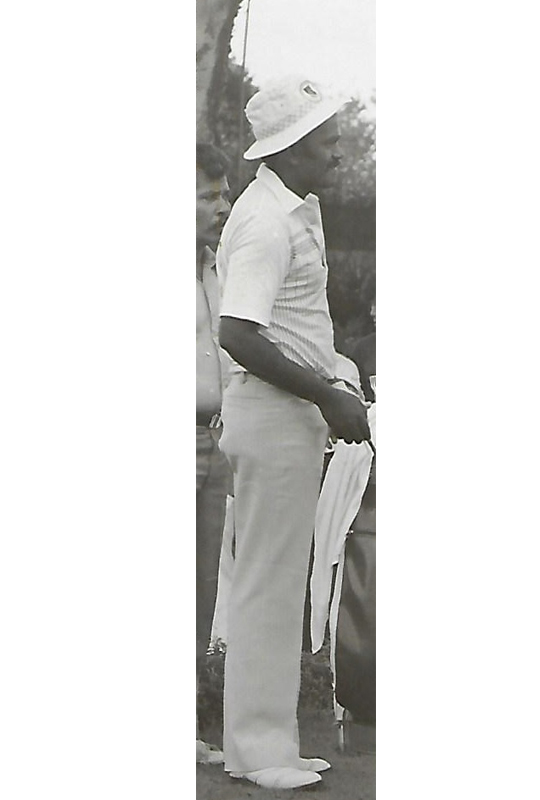

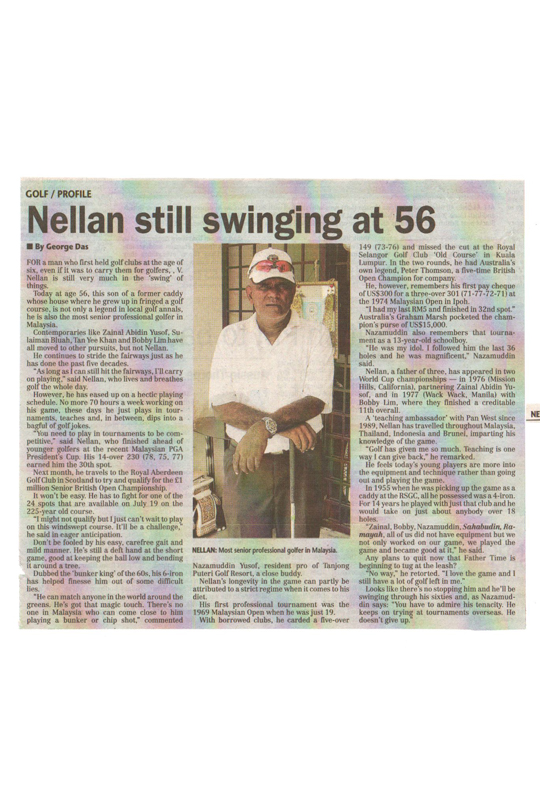




















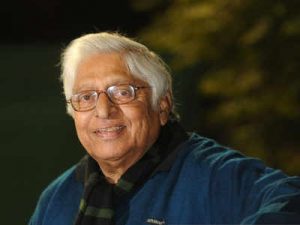
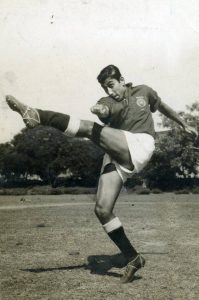
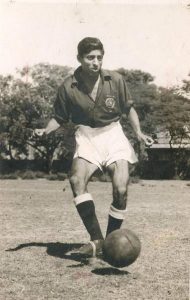
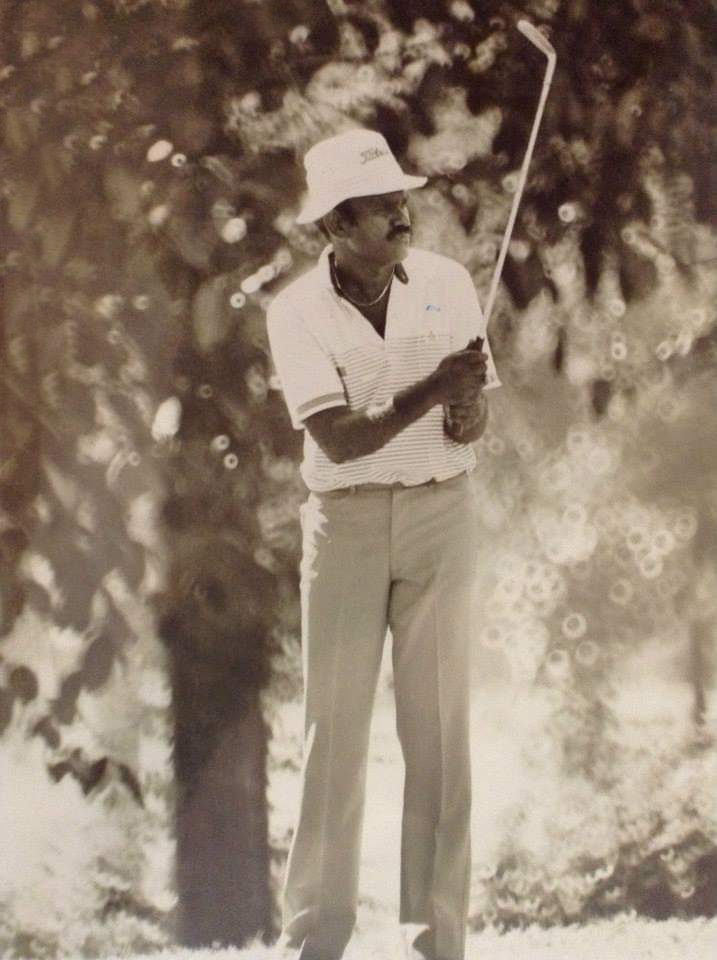
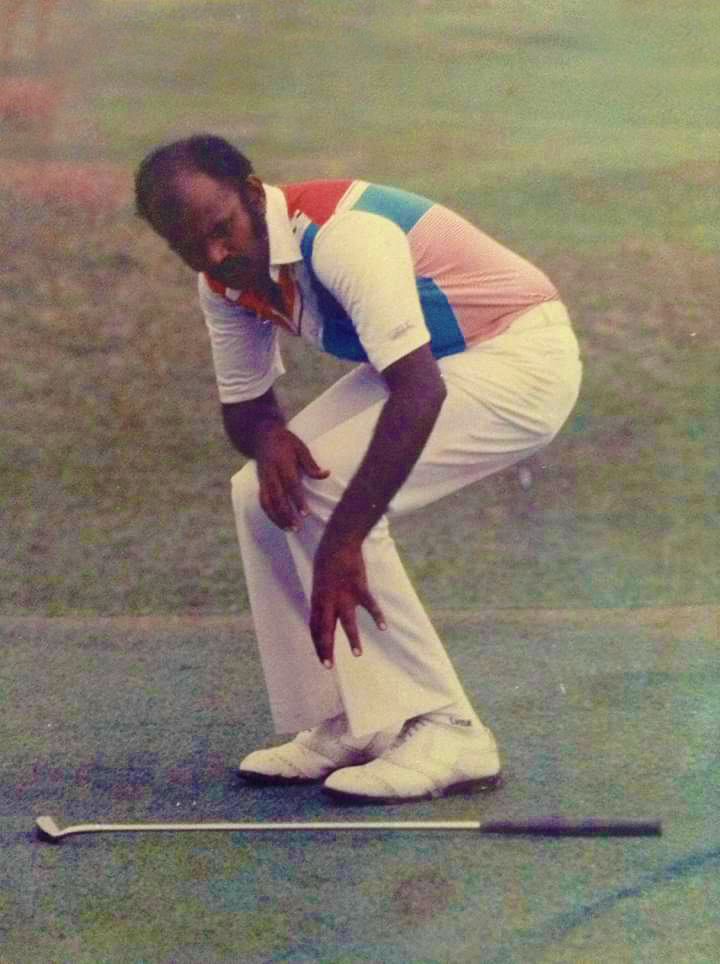
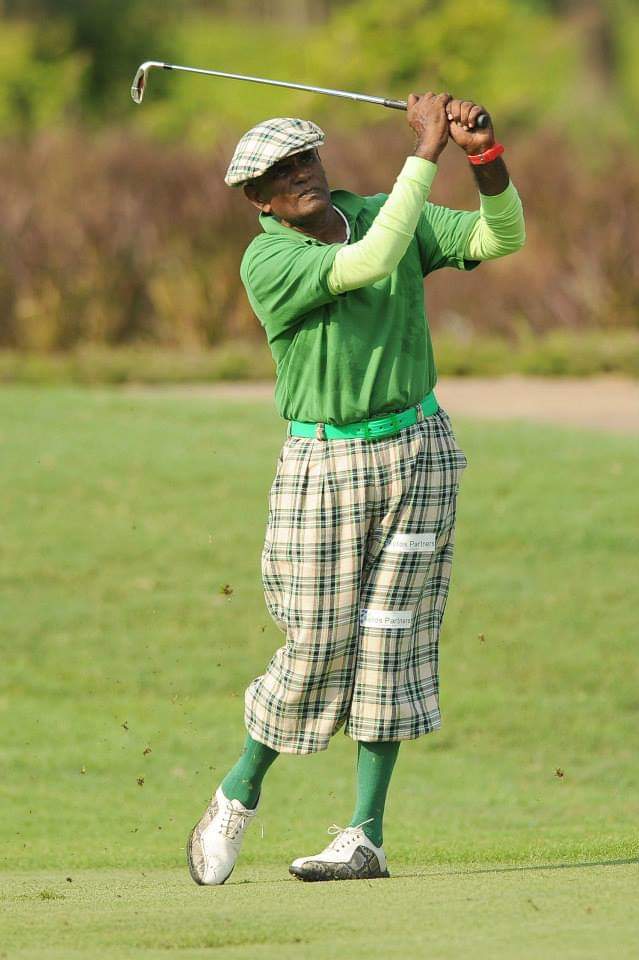
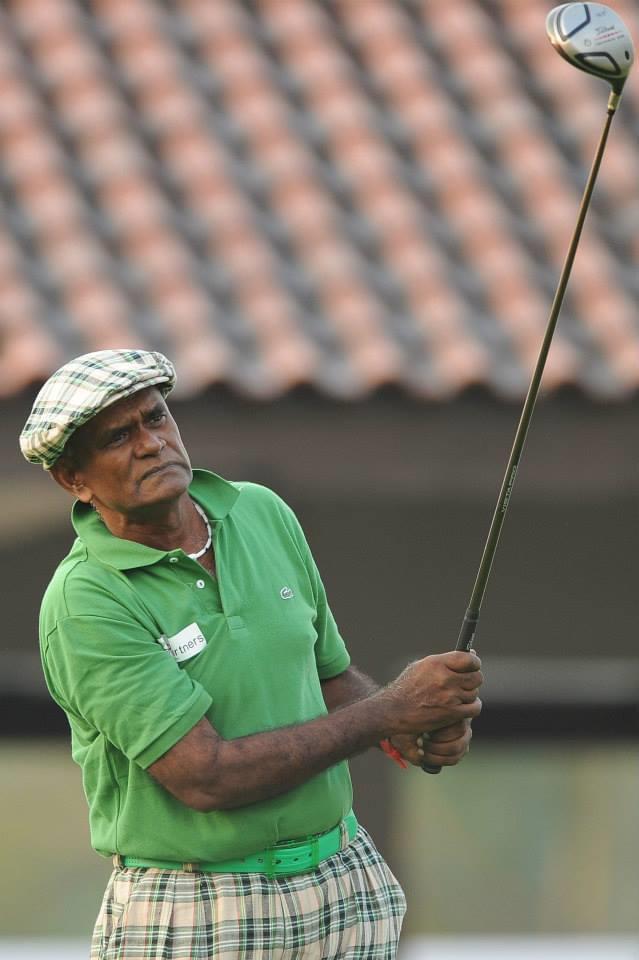
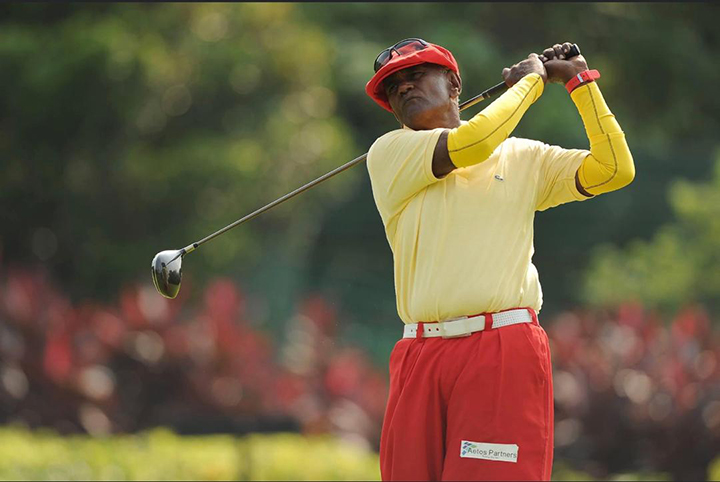

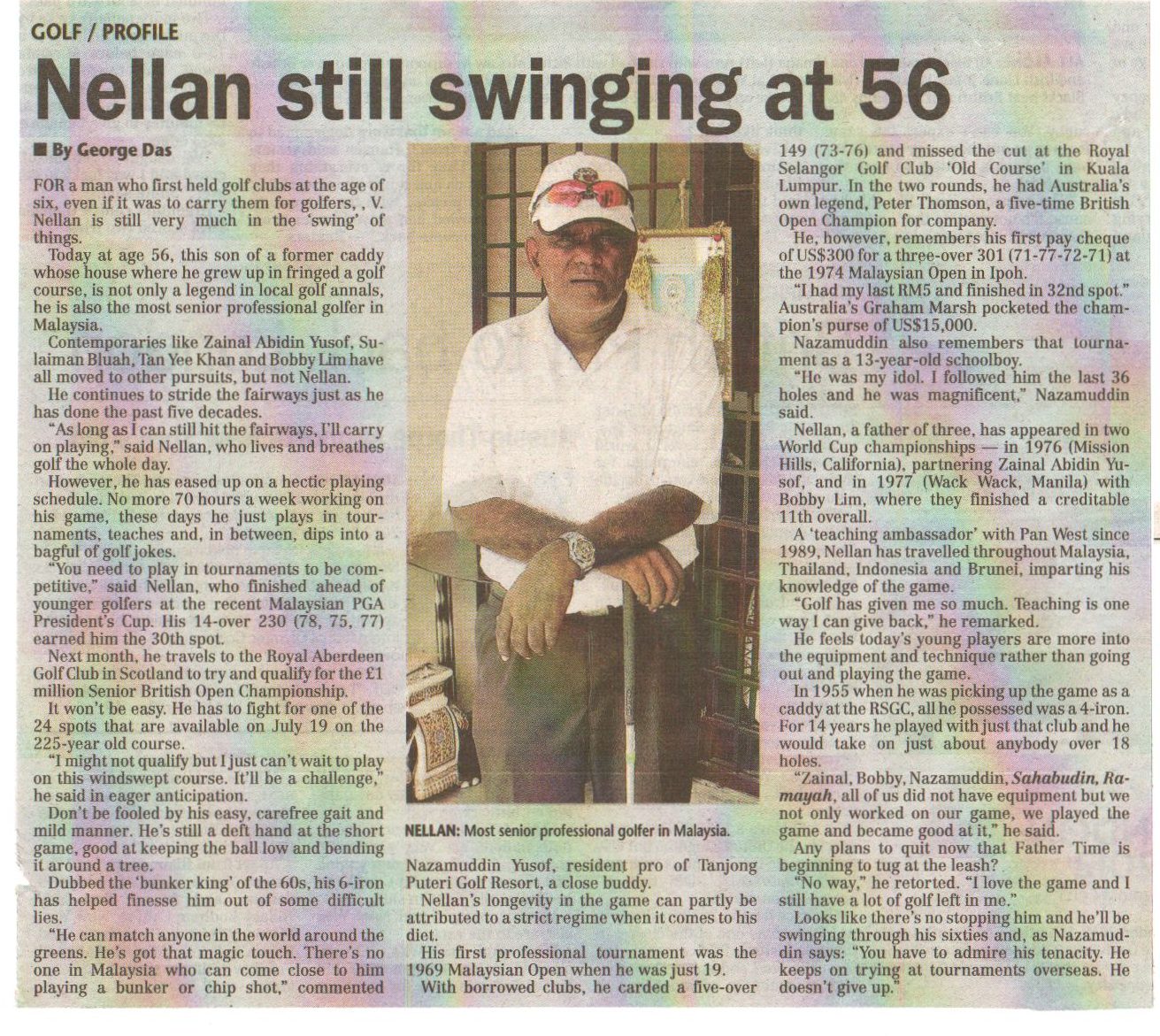
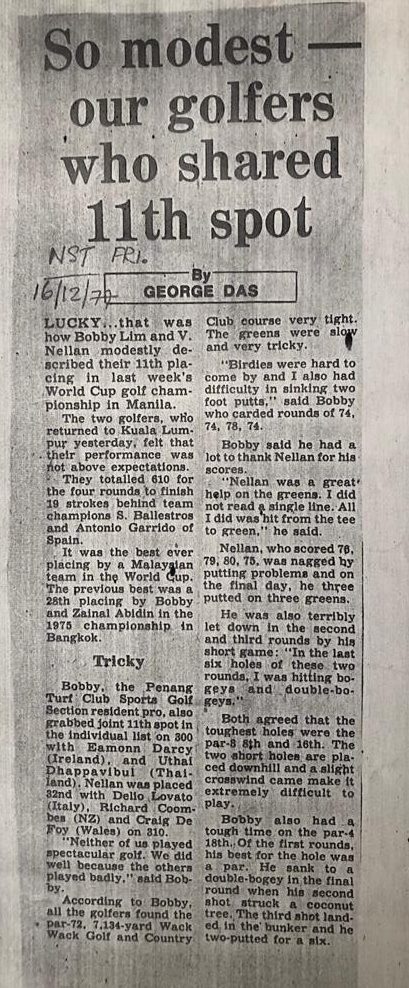
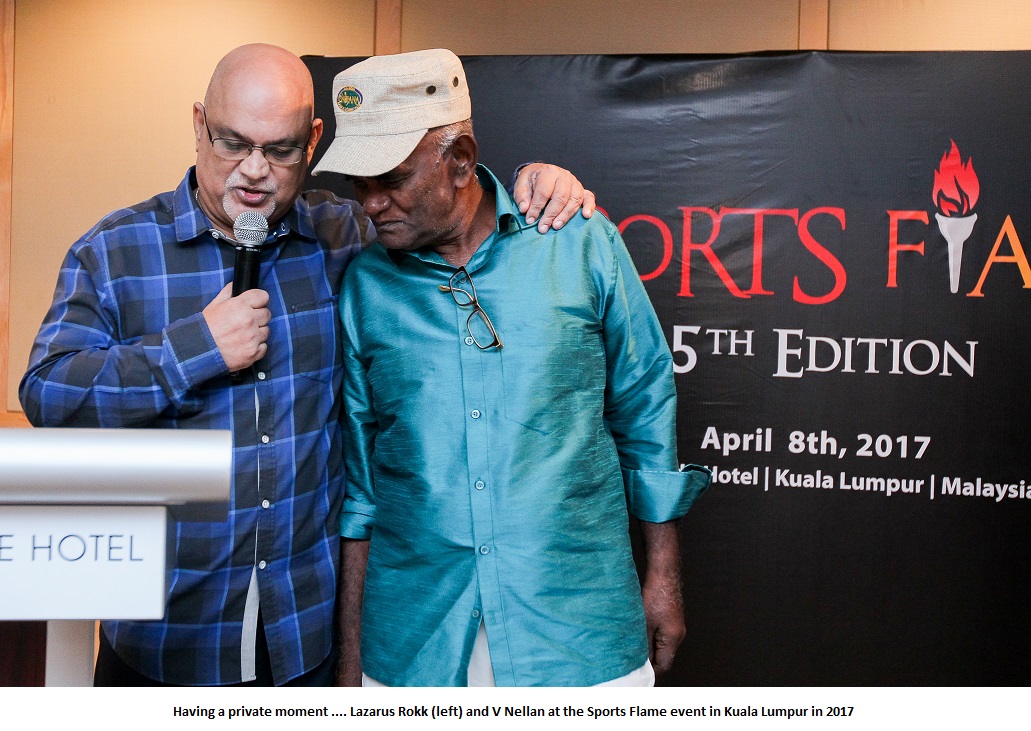
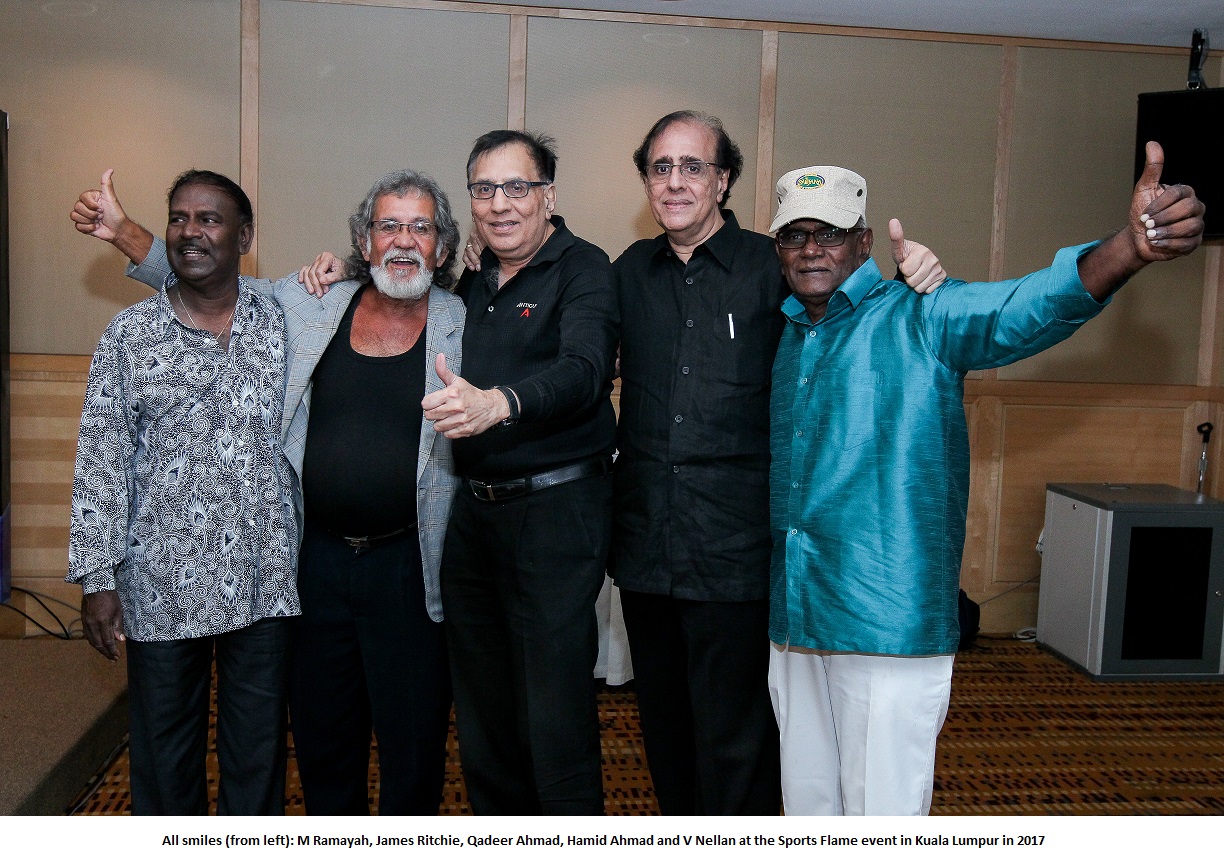












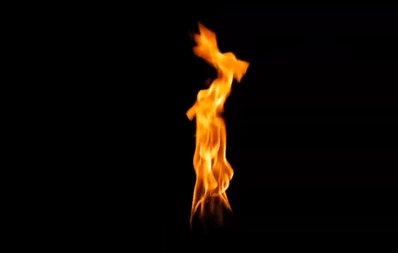 If you have an interesting personal story of a sports personality with photographs and video, we would like to publish it on this site.
If you have an interesting personal story of a sports personality with photographs and video, we would like to publish it on this site.

